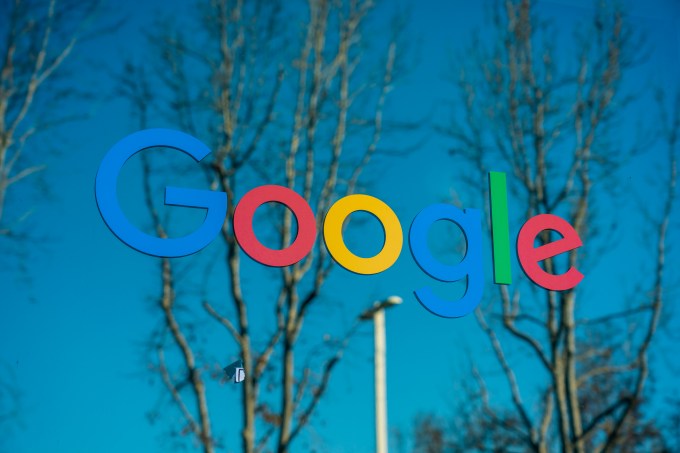The Justice Department is holding an antitrust announcement later today, apparently confirming a report this morning from The Wall Street Journal that it will publish its long-awaited antitrust lawsuit against Google. Signing the suit alongside the DoJ are 11 states, all with Republican Attorneys General: Texas, Arkansas; Florida; Georgia; Indiana; Kentucky; Louisiana; Michigan; Missouri; Montana; and South Carolina.
The DoJ said it that Jeffrey A. Rosen, deputy Attorney General, will be making a formal speech at 9:45am Eastern today.
In the suit, the Justice Department is expected to argue that Google used anticompetitive practices to safeguard its monopoly position as the dominant force in search and search-advertising, which sit at the foundation of the company’s extensive advertising, data mining, video distribution, and information services conglomerate.
It would be the first significant legal challenge that Google has faced from U.S. regulators despite years of investigations into the company’s practices.
A 2012 attempt to bring the company to the courts to answer for anti-competitive practices was ultimately scuttled because regulators at the time weren’t sure they could make the case stick. Since that time Alphabet’s value has skyrocketed to reach over $1 trillion (as of today’s share price).
Alphabet, Google’s parent company, holds a commanding lead in both search and video. The company dominates the search market — with roughly 90% of the world’s internet searches conducted on its platform — and roughly three quarters of American adults turn to YouTube for video, as the Journal reported.
We have reached out to Google for a comment and will update this as we learn more.
In the lawsuit, the Department of Justice will say that Alphabet’s Google subsidiary uses a web of exclusionary business agreements to shut out competitors. The billions of dollars that the search giant collects wind up paying mobile phone companies, carriers and browsers to make the Google search engine a preset default. That blocks competitors from being able to access the kinds of queries and traffic they’d need to refine their own search engine.
It will be those relationships — alongside Google’s insistence that its search engine come pre-loaded (and un-deletable) on phones using the Android operating system and that other search engines specifically not be pre-loaded — that form part of the government’s case, according to Justice Department officials cited by the Journal.
While we are waiting for the DoJ press call to start, some are already putting their (possibly predictable) thoughts out there. This from the co-founder and CEO of DuckDuckGo:
The antitrust suit comes on the heels of a number of other regulatory actions involving Google, which is not only the dominant online search provider, but also a leader in online advertising and in mobile technology by way of Android, as well as a strong player in a web of other interconnected services like mapping, online productivity software, cloud computing and more.

MOUNTAIN VIEW, UNITED STATES – 2020/02/23: American multinational technology company Google logo seen at Google campus. (Photo by Alex Tai/SOPA Images/LightRocket via Getty Images)
A report last Friday in Politico noted that Democrat Attorneys General would not be signing the suit. That report said those AGs have instead been working on a bipartisan, state-led approach covering a wider number of issues beyond search — the idea being also that more suits gives government potentially a stronger bargaining position against the tech giant.
A third suit is being put together by the state of Texas, although that has faced its own issues.
While a number of tech leviathans are facing increasing scrutiny from Washington, with the US now just two weeks from Election Day, it’s unlikely that we are going to see many developments around this and other cases before then. And in the case of this specific Google suit, in the event that Trump doesn’t get re-elected, there will also be a larger personnel shift at the DoJ that could also change the profile and timescale of the case.
In any event, fighting these regulatory cases is always a long, drawn-out process. In Europe, Google has faced a series of fines over antitrust violations stretching back several years, including a $2.7 billion fine over Google shopping; a $5 billion fine over Android dominance; and a $1.7 billion fine over search ad brokering. While Google slowly works through appeals, there are also more cases ongoing against the company in Europe and elsewhere.
Google is not the only one catching the attention of Washington. Earlier in October, the House Judiciary Committee released a report of more than 400 pages in which it outlined how tech giants Apple, Amazon, Alphabet (Google’s parent company) and Facebook were abusing their power, covering everything from the areas in which they dominate, through to suggestions for how to fix the situation (including curtailing their acquisitions strategy).
That seemed mainly to be an exercise in laying out the state of things, which could in turn be used to inform further actions, although in itself, unlike the DoJ suit, the House report lacks teeth in terms of enforcement or remedies.
from Amazon – TechCrunch https://ift.tt/3dG5hZ9
via IFTTT

No comments:
Post a Comment